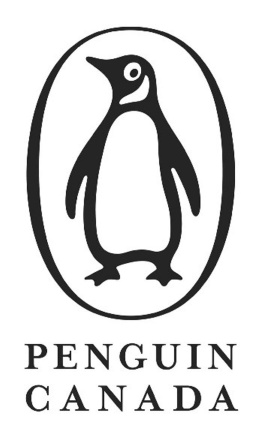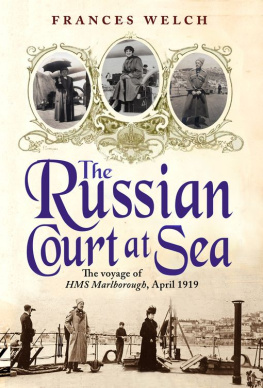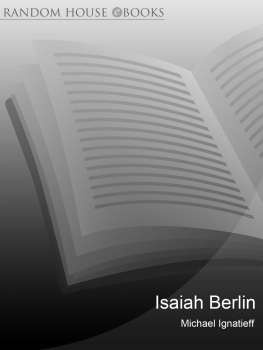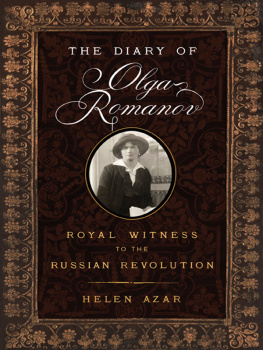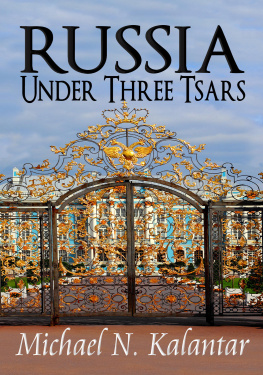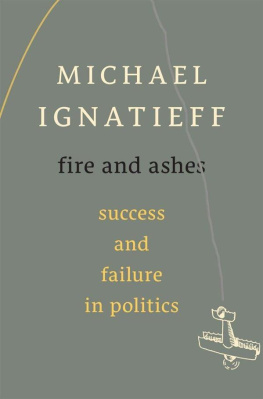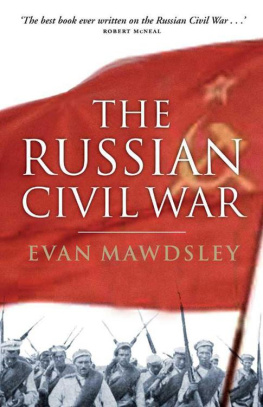PENGUIN CELEBRATIONS
THE RUSSIAN ALBUM
MICHAEL IGNATIEFF is a writer, historian, and politician. His many books include Scar Tissue, nominated for the Booker Prize; Blood and Belonging, winner of the Lionel Gelber Prize; and The Russian Album, winner of the Governor Generals Award. Until 2000, he was a professor at the Kennedy School of Government, Harvard University, and since 2006 has been member of Parliament for Etobicoke-Lakeshore, Toronto. Mr. Ignatieff is the leader of the Liberal Party of Canada.

Published by the Penguin Group
Penguin Group (Canada), 90 Eglinton Avenue East, Suite 700,
Toronto, Ontario, Canada M4P 2Y3 (a division of Pearson Canada Inc.)
Penguin Group (USA) Inc., 375 Hudson Street, New York, New York 10014, U.S.A.
Penguin Books Ltd, 80 Strand, London WC2R 0RL, England
Penguin Ireland, 25 St Stephens Green, Dublin 2, Ireland (a division of Penguin Books Ltd)
Penguin Group (Australia), 250 Camberwell Road, Camberwell, Victoria 3124, Australia
(a division of Pearson Australia Group Pty Ltd)
Penguin Books India Pvt Ltd, 11 Community Centre, Panchsheel Park, New Delhi 110 017, India
Penguin Group (NZ), 67 Apollo Drive, Rosedale, North Shore 0632, New Zealand
(a division of Pearson New Zealand Ltd)
Penguin Books (South Africa) (Pty) Ltd, 24 Sturdee Avenue, Rosebank,
Johannesburg 2196, South Africa
Penguin Books Ltd, Registered Offices: 80 Strand, London WC2R 0RL, England
First published in a Viking Canada hardcover by Penguin Group (Canada),
a division of Pearson Canada Inc., 1987
Published in Penguin Canada paperback by Penguin Group (Canada),
a division of Pearson Canada Inc., 1988, 1995, 2006
Published in this edition, 2009
1 2 3 4 5 6 7 8 9 10 (WEB)
Copyright Michael Ignatieff, 1987
Portions of this book first appeared, some in different form, in Granta, the Observer magazine,
the History Workshop Journal and Harpers.
The Acknowledgements on pp. 24344 constitute a continuation of this copyright page.
All rights reserved. Without limiting the rights under copyright reserved above, no part of this
publication may be reproduced, stored in or introduced into a retrieval system, or transmitted in
any form or by any means (electronic, mechanical, photocopying, recording or otherwise), without
the prior written permission of both the copyright owner and the above publisher of this book.
Manufactured in Canada.
Library and Archives Canada Cataloguing in Publication data available
upon request to the publisher.
ISBN: 978-0-14-317165-2
Except in the United States of America, this book is sold subject to the condition that
it shall not, by way of trade or otherwise, be lent, re-sold, hired out, or otherwise circulated
without the publishers prior consent in any form of binding or cover other than that
in which it is published and without a similar condition including this condition being imposed
on the subsequent purchaser.
Visit the Penguin Group (Canada) website at www.penguincelebrations.ca
Special and corporate bulk purchase rates available; please see
www.penguin.ca/corporatesales or call 1-800-810-3104, ext. 477 or 474
FOR THEO AND HIS GRANDFATHER
in what shape
was it we first perceived itthe unstanched
hereditary thing, working its way
along the hollows of the marrow?
Amy Clampitt What the Light Was Like
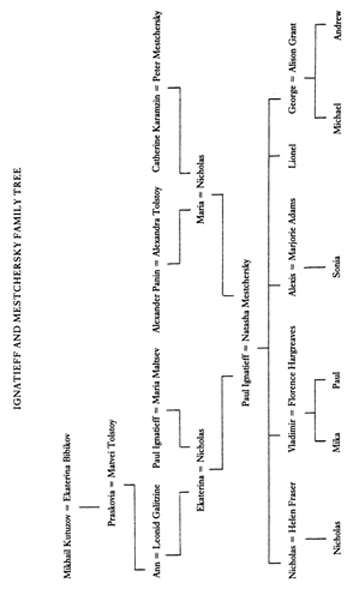
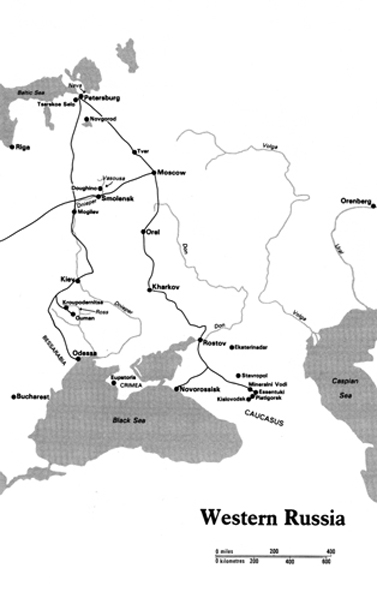
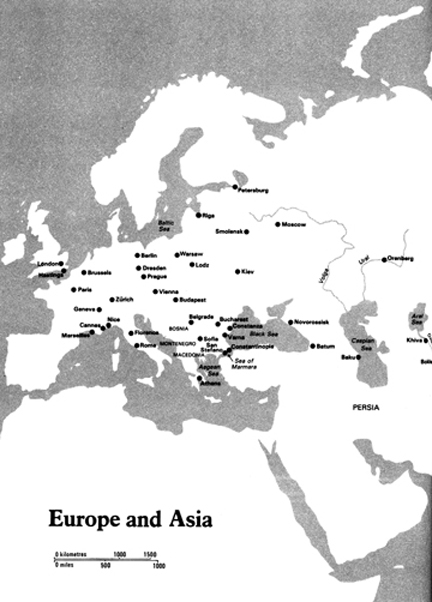
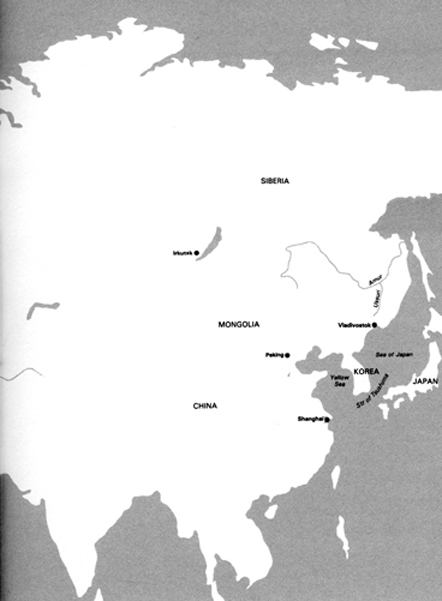
ONE
THE BROKEN PATH
Dwell on the past and youll lose an eye.
Ignore the past and youll lose both of them.
OLD RUSSIAN PROVERB
No one I know lives in the house where they grew up or even in the town or village where they once were children. Most of my friends live apart from their parents. Many were born in one country and now live in another. Others live in exile, forming their thoughts in a second language among strangers. I have friends whose family past was consumed in the concentration camps. They are orphans in time. This century has made migration, expatriation and exile the norm, rootedness the exception. To come as I do from a hybrid family of White Russian exiles who married Scottish Canadians is to be at once luckywe survivedand typical.
Because emigration, exile and expatriation are now the normal condition of existence, it is almost impossible to find the right words for rootedness and belonging. Our need for home is cast in the language of loss; indeed, to have that need at all you have to be already homeless. Belonging now is retrospective rather than actual, remembered rather than experienced, imagined rather than felt. Life now moves so quickly that some of us feel that we were literally different people at previous times in our lives. If the continuity of our own selves is now problematic, our connection with family ancestry is yet more in question. Our grandparents stare out at us from the pages of the family album, solidly grounded in a time now finished, their lips open, ready to speak words we cannot hear.
For many families, photographs are often the only artefacts to survive the passage through exile, migration or the pawnshop. In a secular culture, they are the only household icons, the only objects that perform the religious function of connecting the living to the dead and of locating the identity of the living in time. I never feel I know my friends until either I meet their parents or see their photographs, and since this rarely happens, I often wonder whether I know anybody very well. If we are strangers even to our friends, it is because our knowledge of each other is always in a dimension of time that my grandparents culture would have considered inconceivably shallow. In the world of both the rich and the poor of even a century ago, one knew someone as his fathers son, his grandmothers grandson and so on. In the Russian style of address, first name and then patronymic, this kind of knowing is inscribed in the very way one names a friend or relation. To a Russian, I am Michael Georgevitch, Georges son, a self rooted in a family past. In the non-Russian world I live in, I am known for what I do, for how I am now, not for the past I embody. Looking at someones family album is a way towards a deeper temporal knowing of another. But nowadays, a frontier of intimacy has to be crossed before these photographs are shown even to friends. Within the family itself, photographs are not really icons, hovering presences on the wall. Styles of inheritance are now individual: we are free to take or refuse our past. Children have as much right to refuse interest in these icons as they have to stick to their own opinions. Yet the more negotiable, the more invented the past becomes, the more intense its hold, the more central its invention becomes in the art of making a self. Eventually there are few of us who do not return home one holiday weekend, go to the bottom drawer, pull out the old shoe box and spread the pictures around us on the floor.
Father has his arm around Tereze
She squints. My thumb
Next page
